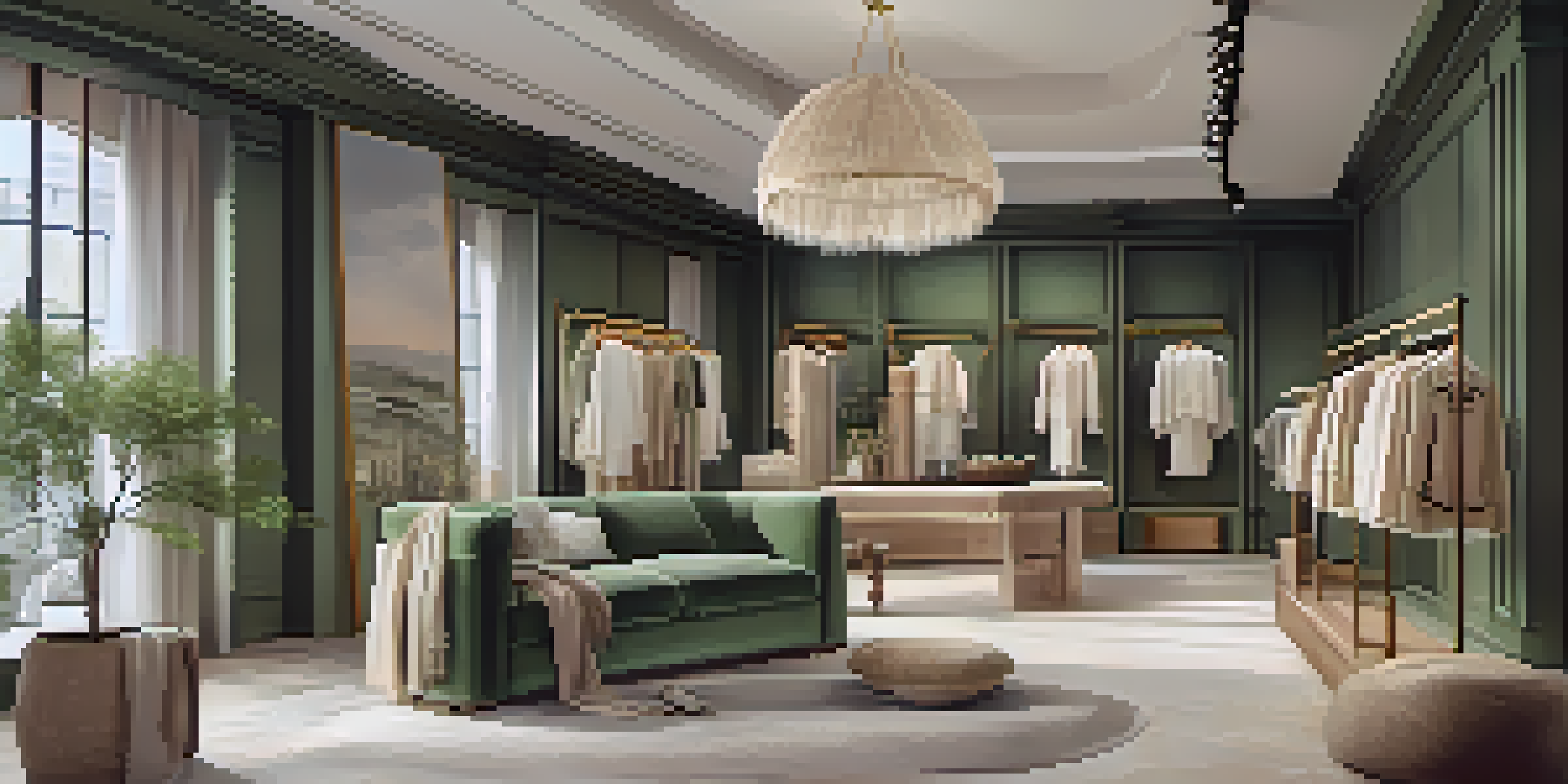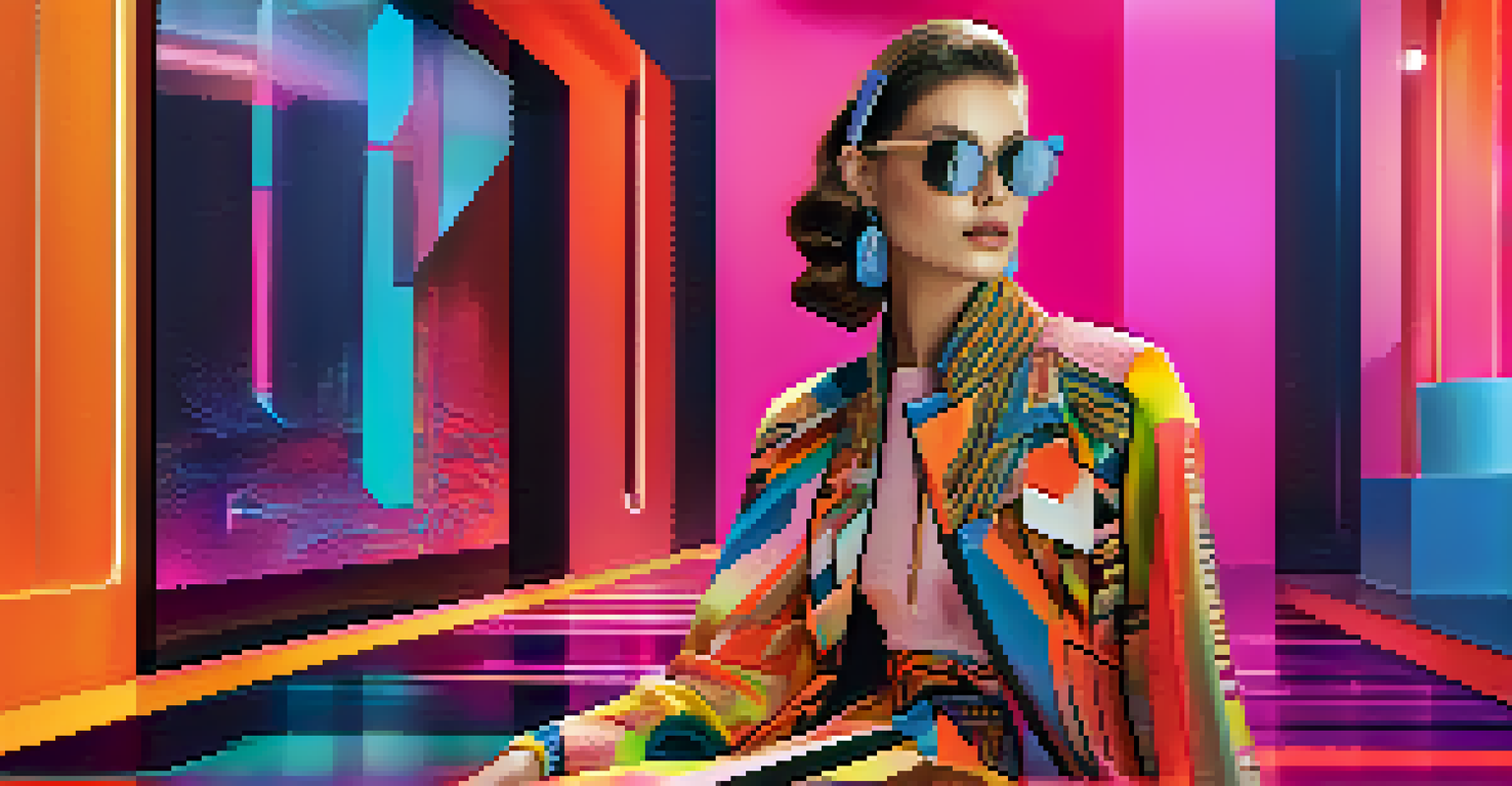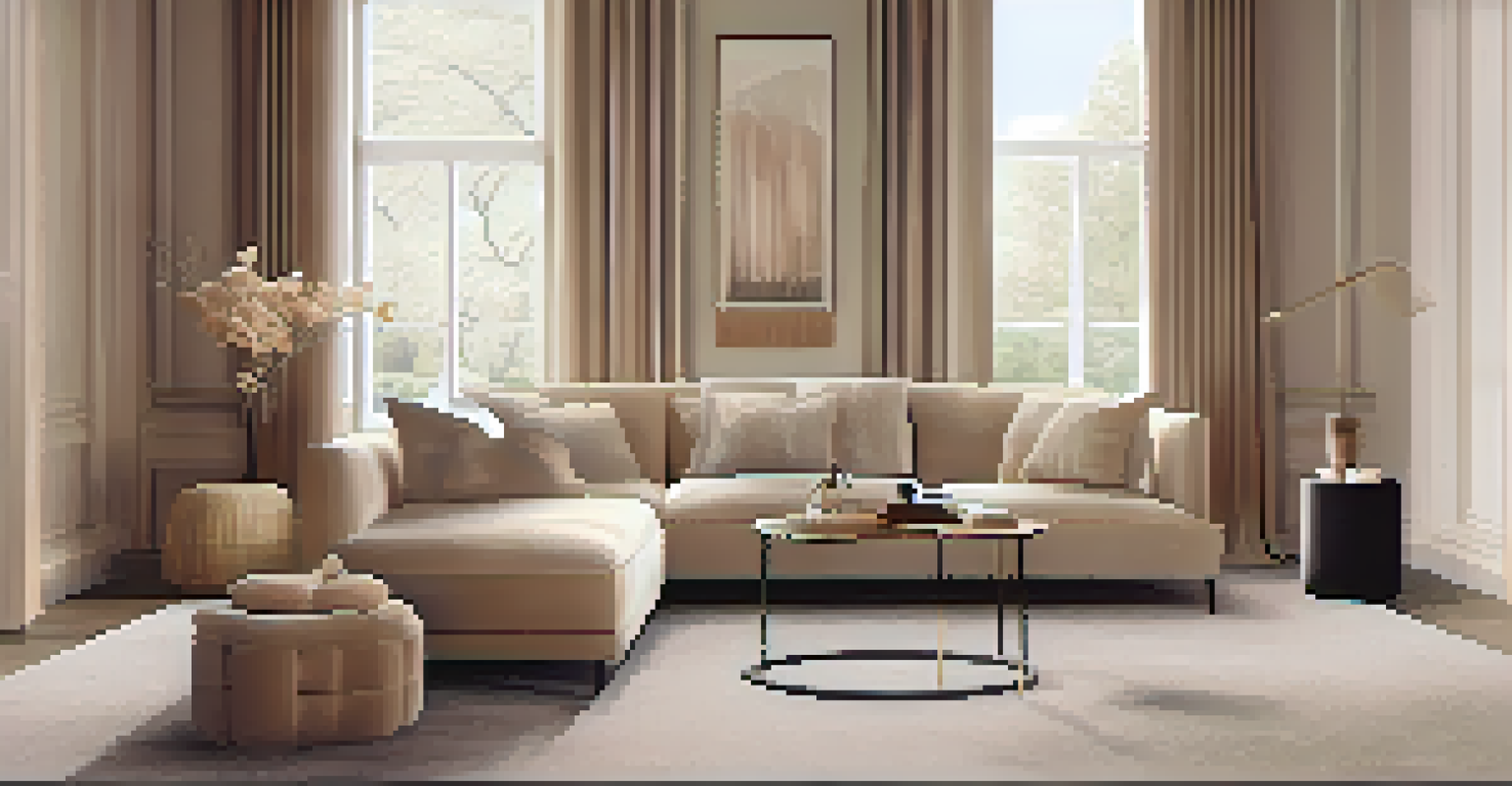Emerging Luxury Fashion Trends Shaping 2023 and Beyond

Sustainable Luxury: Fashion's New Frontier in 2023
Sustainability has become more than just a buzzword in the fashion industry; it's now a key driver shaping luxury brands. As consumers become increasingly aware of their environmental impact, luxury fashion houses are prioritizing eco-friendly practices. From sourcing organic materials to adopting circular fashion models, brands are embracing sustainability not just as a trend, but as a core value.
Sustainability is no longer a choice, but a responsibility of luxury brands to protect the planet for future generations.
Take, for instance, brands like Stella McCartney, which have long championed sustainable practices. Their commitment to cruelty-free materials and responsible production processes sets a benchmark for others in the industry. As more luxury brands follow suit, we're witnessing a shift towards transparency, where brands openly share their sustainability efforts with consumers.
Ultimately, the rise of sustainable luxury not only caters to conscious consumers but also redefines what it means to be ‘luxurious’ in today's context. It's about creating timeless pieces that not only look good but also do good for the planet.
The Rise of Digital Couture and Virtual Fashion
As technology continues to evolve, so does the concept of luxury fashion. Digital couture and virtual fashion are gaining traction, especially in a world where online presence is paramount. Brands like Balenciaga and Gucci are exploring digital wearables, allowing consumers to flaunt high-fashion looks in the metaverse without the need for physical garments.

This trend reflects a significant shift in how consumers engage with fashion. Imagine attending a virtual event and donning a stunning digital outfit that showcases your personal style, all without the environmental cost of traditional production. The possibilities are endless, as brands delve into augmented reality and NFTs, creating unique experiences for their clientele.
Sustainability Shapes Luxury Brands
Luxury fashion houses are prioritizing eco-friendly practices and transparency in response to consumer demand for sustainability.
Moreover, this digital pivot presents an exciting avenue for emerging designers to gain visibility and showcase their creativity. As the lines between physical and digital fashion continue to blur, we're likely to see more collaborations between tech and fashion, ushering in a new era of luxury.
Inclusivity and Diversity: Redefining Luxury Standards
The fashion industry is taking significant strides towards inclusivity and diversity, challenging the traditional standards of luxury. In 2023, we see more brands embracing a broader representation of body types, ethnicities, and gender identities in their campaigns and runway shows. This shift not only reflects societal changes but also resonates with consumers who value authenticity and relatability.
Fashion is the armor to survive the reality of everyday life.
For example, brands like Savage X Fenty have set new benchmarks by promoting body positivity through diverse models. This approach not only enhances brand loyalty but also creates a community where everyone feels represented. As luxury brands begin to prioritize inclusivity, we can expect a more holistic definition of luxury that celebrates all forms of beauty.
Furthermore, this movement encourages consumers to engage with brands that align with their values, fostering a deeper connection. As inclusivity continues to shape the luxury landscape, it becomes clear that true luxury lies in making everyone feel seen and valued.
Personalization: The New Standard in Luxury Shopping
In today's fast-paced world, personalization has emerged as a cornerstone of luxury shopping experiences. Consumers now seek tailored products and services that resonate with their individual preferences and lifestyles. Luxury brands are leveraging data and AI technology to provide bespoke experiences, from custom clothing to personalized shopping recommendations.
For instance, brands like Louis Vuitton offer monogramming services, allowing customers to add a personal touch to their purchases. This level of customization not only enhances the shopping experience but also fosters brand loyalty, as consumers feel a deeper connection to their unique pieces. As personalization becomes more mainstream, it sets a new expectation for luxury shopping.
Digital Fashion Expands Opportunities
The rise of digital couture allows consumers to engage with fashion in innovative ways, blurring the lines between physical and virtual experiences.
Moreover, the rise of direct-to-consumer brands has further amplified this trend, as they prioritize customer feedback and preferences. As we move forward, the ability to personalize will likely play a crucial role in distinguishing luxury brands from their competitors.
Heritage Revival: Embracing Timeless Craftsmanship
In an age dominated by fast fashion, there's a growing appreciation for heritage and craftsmanship in luxury fashion. Brands are revisiting their roots, emphasizing artisanal skills and traditional techniques that reflect their rich histories. This revival not only honors the past but also appeals to consumers looking for authenticity and quality in their purchases.
Take the resurgence of brands like Gucci, which has recently highlighted its craftsmanship through limited-edition collections that pay homage to its heritage. By weaving stories of tradition into their offerings, luxury brands are creating a narrative that resonates with discerning consumers. This trend underscores the idea that true luxury is about investing in pieces that stand the test of time.
As we embrace the heritage revival, we can expect to see more brands celebrating their origins and showcasing the artisans behind their creations. This appreciation for craftsmanship not only elevates the brand's identity but also enriches the overall consumer experience.
Comfort-Driven Luxury: The Rise of Loungewear
The shift towards remote work and a more casual lifestyle has led to the rise of comfort-driven luxury. As consumers prioritize comfort without sacrificing style, luxury brands are responding by creating sophisticated loungewear collections. This trend blurs the lines between homewear and high fashion, allowing individuals to feel chic while remaining cozy.
Brands like Jacquemus and The Row have embraced this shift, designing pieces that combine elegance with comfort. Imagine a stylish, tailored lounge set that feels as good as it looks—this is the new luxury. By prioritizing comfort, luxury fashion is adapting to modern lifestyles while remaining relevant.
Inclusivity Redefines Luxury Standards
The fashion industry is embracing diversity in representation, creating a more authentic and relatable luxury experience for consumers.
Furthermore, this trend reflects a broader societal change where the definition of luxury is evolving. It's no longer just about opulence but about feeling good in what you wear. As we continue to embrace comfort-driven luxury, we can expect to see more innovation in fabric and design that caters to this desire.
Tech-Infused Fashion: Merging Style with Innovation
As technology continues to infiltrate various aspects of our lives, fashion is no exception. 2023 is witnessing a surge in tech-infused fashion, where luxury brands are integrating innovative technology into their designs. From smart fabrics that adjust to temperature changes to clothing embedded with health-monitoring sensors, the possibilities are exciting and endless.
For instance, brands like Ralph Lauren are pioneering smart clothing that tracks fitness metrics, merging style with functionality. This intersection of fashion and technology not only enhances the consumer experience but also opens up new avenues for creativity within the industry. As tech continues to evolve, luxury fashion is likely to embrace these advancements to stay ahead.

Moreover, the integration of technology fosters a sense of connectivity between the consumer and their wardrobe. Imagine wearing a jacket that not only looks stunning but also provides real-time feedback on your posture or activity levels. As we move forward, tech-infused fashion is set to redefine our relationship with clothing, making it more interactive and personalized.